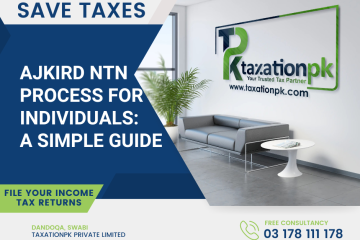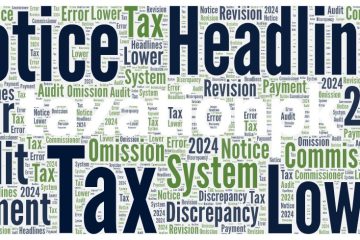A notice under Section 177 of the Income Tax Ordinance, 2001, is issued by the FBR (Federal Board of Revenue) in Pakistan for conducting an audit of your income tax affairs. It’s a crucial step in the tax assessment process and aims to verify the accuracy of your filed tax return.
Here’s what you need to know about a Section 177 notice:
Purpose:
- The notice empowers the FBR to inspect your books of accounts, records, and other relevant documents.
- This allows them to verify the income and expenses you declared in your tax return and identify any discrepancies or potential tax evasion.
- The audit can cover a specific period or your entire tax history.
What the notice contains:
- The notice will mention the tax year(s) under audit.
- It will specify the reasons for the audit, which could be random selection, discrepancies in your return, or specific information received by the FBR.
- The notice will also outline the documents and information you need to provide, usually within a specified timeframe. This might include bank statements, invoices, receipts, property records, etc.
If you are a filer and regularly filing tax returns, the Federal Board of Revenue (FBR) will not audit you every year by default. There is a specific procedure and policy regarding tax audits, which is outlined in the Income Tax Ordinance, 2001, under Section 177. Here’s a detailed explanation of how the process works, the related legal provisions, and what you need to know:
Tax Audit Policy and Process
- Audit Selection:
FBR does not audit every filer annually. Taxpayers are selected for audit based on specific criteria. The selection process may involve:- Random Balloting: Names are selected randomly through an automated system.
- Risk-Based Parameters: FBR identifies discrepancies, such as undeclared income or mismatched tax records, from its data.
- Special Cases: If FBR identifies significant tax liabilities, undeclared assets, or unfiled information in its records, a taxpayer may be flagged for audit.
- Audit Frequency:
According to Section 105A, introduced in 2023, a taxpayer can only be subjected to a comprehensive audit once every four years. For example:- If an audit for tax year 2017 is finalized in 2022, no new audit notice can be issued until 2027. This restriction ensures taxpayers are not repeatedly audited within the four-year window.
- Scope of Audit:
Under Section 177, the Commissioner of Inland Revenue can:- Require submission of records, including books of accounts and supporting documents.
- Verify declared assets, income, and expenses reported in tax returns.
- Investigate specific transactions, such as property purchases or significant financial movements, if discrepancies are found.
- Taxpayer’s Rights and Responsibilities:
- Taxpayers should first review any notice received to understand its legal basis and the section under which it is issued.
- Notices must clearly reference the law (e.g., Section 177) and detail the required documents or records.
- Taxpayers should ensure all reported details, such as income, assets, and expenses, are accurate and supported by evidence.
- Examples of Triggers for Audit:
- Purchasing property or assets without declaring them in tax returns.
- Significant changes in tax liabilities over consecutive years.
- Mismatched data between FBR records and filed returns.
Legal Provisions in Income Tax Ordinance, 2001
- Section 177: Grants authority to the Commissioner to conduct audits and demand records from taxpayers.
- Section 214C: Governs the selection of cases for audit through random balloting or risk assessment.
- Section 105A: Limits the frequency of audits, allowing only one audit in four years.
Practical Considerations for Taxpayers
- Filing Accurate Returns: If you file accurate tax returns with complete details of income, assets, and expenses, the likelihood of receiving a notice is low.
- Data Matching: Ensure all income sources (e.g., salary, property, rental income) match FBR records to avoid discrepancies.
- Responding to Notices: If you receive a notice, verify the section mentioned and comply with the request. If unclear, consult a tax professional.
Audit Exemptions for Salaried Individuals
Salaried taxpayers are generally less likely to be audited unless discrepancies exist between declared income and tax deductions. If everything is accurately reported, such individuals might not face an audit for years.
Responding to the notice:
- It’s mandatory to comply with the notice and provide the requested information within the deadline. Failure to do so can lead to penalties.
- You can cooperate with the FBR by providing all relevant documents and explanations.
- If you need more time or clarification, you can request an extension or contact the FBR for assistance.
- Consider seeking professional advice from a tax consultant to ensure you understand the process and protect your rights.
Important points:
- Receiving a Section 177 notice doesn’t necessarily mean you’ve committed tax evasion. It’s a routine procedure for ensuring tax compliance.
- Cooperation and transparency are crucial throughout the audit process.
- You have the right to appeal the audit findings or assessment if you disagree with them.
An FBR audit is not an annual occurrence for filers. While the law allows FBR to request records and information, comprehensive audits are limited to once every four years under Section 105A. By filing accurate returns and maintaining proper documentation, taxpayers can minimize the likelihood of audits or notices.




